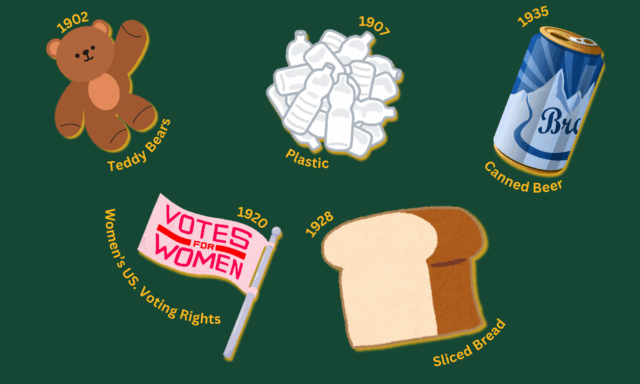By Stacie Boyls | Arts and Life Writer
On Thursday, The Baylor Lariat will celebrate 125 years of student-led news coverage, including everything from national headlines to campus life. Through inventions, political movements and modern-day conveniences, The Lariat has truly seen it all.
Founded in 1900, The Lariat is one of the oldest student papers in Texas. More than a century of modern life has been witnessed and documented by the student journalists of The Lariat. To put this monumental celebration in perspective and to celebrate the development of student press over these years, here are 10 important historical developments that succeed the birth of The Lariat.
The Super Bowl (1967)
The first Super Bowl, which didn’t kick off until Jan. 15, 1967, was played between the Green Bay Packers and the Kansas City Chiefs. By then, The Lariat had already been reporting for nearly seven decades, covering Baylor football long before lavish halftime shows, anticipated commercials and coveted championship rings that defined American sports culture.
I-35 (1956)
Baylor’s favorite incomplete highway has been causing headaches and traffic jams with its constant construction and development since 1956 after Texas native and President Dwight D. Eisenhower signed the Federal-Aid Highway Act. Through this highway construction, Waco has earned a dedicated space on the Texas map, propelling Waco’s economic and public growth to unprecedented heights.
Canned beer (1935)
The first canned beer was released to the public by the Gottfried Krueger Brewing Company in Richmond, Va. This development has forever changed the social norms of drinking and alcohol consumption. Making beer easily accessible to the public marked a true end to prohibition, an era The Baylor Lariat witnessed come and go for American citizens.
Penicillin (1928)
Science witnessed many major medical developments during the 20th century, one of which was penicillin — the first antibiotic — discovered by Alexander Fleming. Since then, Baylor students have been armed against ignorance and common bacterial infections, as both Baylor student media and modern medicine discoveries grow in tandem.
Sliced Bread (1928)
According to history.com, sliced bread was first manufactured and distributed in 1928 by a Missouri-based jeweler named Otto Rohwedder. After a devastating fire and skeptical bakers threatened his success, his revolutionary bread slicer saw great success after being commissioned by Chillicothe Baking Company.
Women’s U.S. voting rights (1920)
Twenty years after The Lariat was founded, the 19th Amendment was ratified. This amendment solidified women’s suffrage and provided the groundwork for social justice advancements in the United States. As society progressed over the years, so has The Lariat, mirroring the constant evolution of humanity.
Movies made in color (1908)
The first commercially successful color motion picture process, Kinemacolor, debuted in 1908 — eight years after The Lariat’s first issue. Now, movies are made in high-definition resolutions with extensive editing and special effects, constantly pushing the boundaries of modern technology and filmmaking processes.
Plastic (1907)
Leo Baekeland invented Bakelite, the first fully synthetic plastic, in 1907. Since its inception, plastic has become an integral part of daily life. From modern cloth blends to plastic straws, our world depends on the continued production of plastic, and all its later developments.
The State of Oklahoma (1907)
Yes, really. Our Northern neighbor was still considered Native American territory at the start of Baylor’s beloved paper in 1900. It was not until 1907 that Oklahoma was approved for statehood and joined the ranks of the American Union.
Teddy bears (1902)
The iconic stuffed toy was inspired by a 1902 hunting trip by President Theodore Roosevelt in which he refused to shoot a captured bear. Now, the teddy bear reigns supreme as an American symbol of innocence and childhood nostalgia, while also invoking school spirit in our very own Baylor Bears.



